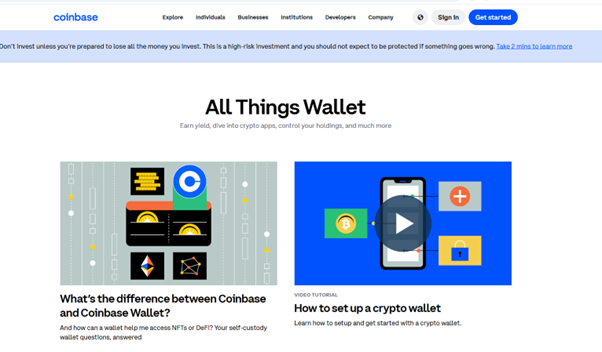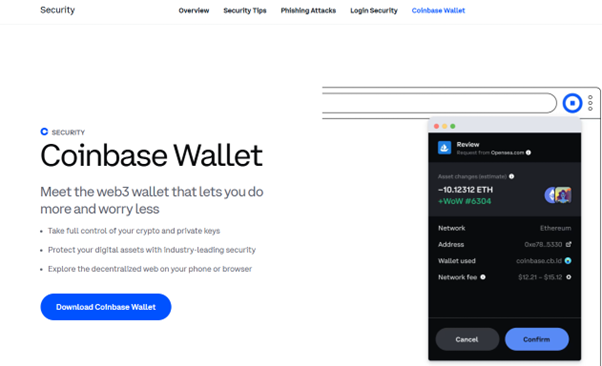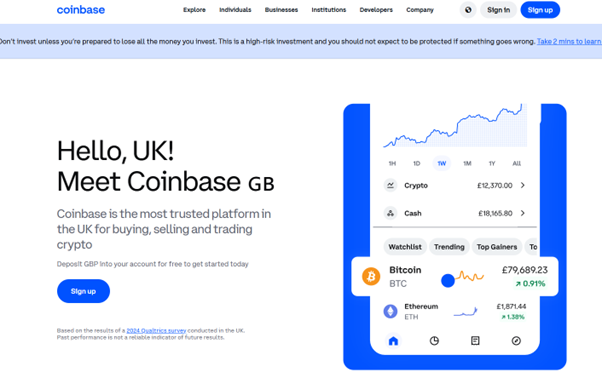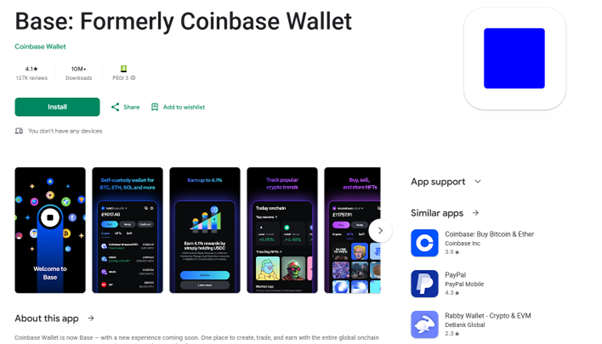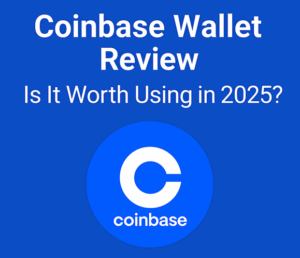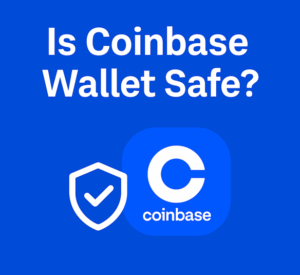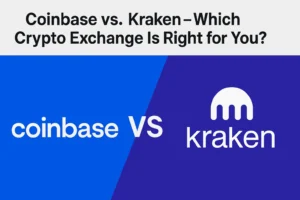Is Coinbase Wallet Safe to Use in 2025?

- expertise:
- CFD Trading, Forex, Derivatives, Risk Management
- credentials:
- Chartered ACII (2018) · Trading since 2012
- tested:
- 40+ forex & CFD platforms with live accounts

- expertise:
- Platform Testing, Cryptocurrency, Retail Investing
- credentials:
- Active investor since 2013 · 11+ years experience
- tested:
- 50+ platforms · 200+ guides authored

- expertise:
- Broker Comparison, ISA Strategy, Portfolio Management
- credentials:
- Active investor since 2013 · 11+ years experience
- tested:
- 40+ brokers with funded accounts

- expertise:
- CFD Trading, Forex, Derivatives, Risk Management
- credentials:
- Chartered ACII (2018) · Trading since 2012
- tested:
- 40+ forex & CFD platforms with live accounts

- expertise:
- Platform Testing, Cryptocurrency, Retail Investing
- credentials:
- Active investor since 2013 · 11+ years experience
- tested:
- 50+ platforms · 200+ guides authored

- expertise:
- Broker Comparison, ISA Strategy, Portfolio Management
- credentials:
- Active investor since 2013 · 11+ years experience
- tested:
- 40+ brokers with funded accounts
How We Test
Real accounts. Real money. Real trades. No demo accounts or press releases.
What we measure:
- Spreads vs advertised rates
- Execution speed and slippage
- Hidden fees (overnight, withdrawal, conversion)
- Actual withdrawal times
Scoring:
Fees (25%) · Platform (20%) · Assets (15%) · Mobile (15%) · Tools (10%) · Support (10%) · Regulation (5%)
Regulatory checks:
FCA Register verification · FSCS protection
Testing team:
Adam Woodhead (investing since 2013), Thomas Drury (Chartered ACII, 2018), Dom Farnell (investing since 2013) — 50+ platforms with funded accounts
Quarterly reviews · Corrections: [email protected]
Disclaimer
Not financial advice. Educational content only. We're not FCA authorised. Consult a qualified advisor before investing.
Capital at risk. Investments can fall. Past performance doesn't guarantee future results.
CFD warning. 67-84% of retail accounts lose money trading CFDs. High risk due to leverage.
Contact: [email protected]
Quick Answer – How Safe Is Coinbase Wallet Really?
Coinbase Wallet is secure if used correctly. It’s non-custodial, meaning only you hold the private keys. The app includes strong encryption and is backed by Coinbase’s reputation. However, users are fully responsible for backup and recovery—losing your seed phrase means losing access permanently.
Coinbase Overview
- Minimum Deposit: No fixed minimum (buy crypto from as little as £2 / $2)
- Buy, sell, and trade Bitcoin, Ethereum, and hundreds of other cryptocurrencies
- Regulated in the US and trusted by over 100 million users worldwide
- User-friendly app and web platform with secure wallet storage
- Ideal for beginners and experienced investors seeking easy access to the crypto market
Don’t invest unless you’re prepared to lose all the money you invest. This is a high-risk investment and you should not expect to be protected if something goes wrong. Take 2 mins to learn more.
Does Coinbase Wallet Offer Full Control of Your Crypto?
Yes. Unlike the Coinbase exchange, Coinbase Wallet gives users complete control over their crypto assets. You manage your private keys directly, without relying on third-party custody. This ensures true ownership, but it also increases responsibility for security, recovery, and transaction management.
What Does “Non-Custodial” Mean for Security?
Non-custodial wallets like Coinbase Wallet store private keys on your device, not on company servers. This eliminates centralised risks such as exchange hacks but shifts all responsibility to the user. If your device is compromised or your seed phrase lost, recovery is impossible.
What Security Features Are Built Into Coinbase Wallet?
Coinbase Wallet supports biometric login, encrypted private key storage, and optional cloud backups. It also offers scam warnings when interacting with suspicious dApps. While secure, it relies heavily on user habits—using strong passwords and keeping recovery phrases offline is critical.
Can Hackers Access My Private Keys or Funds?
Hackers can’t access your private keys unless your device is compromised or you reveal your recovery phrase. Coinbase Wallet encrypts key data locally. However, phishing attacks, malware, and user mistakes still pose risks—your security depends on device hygiene and cautious behaviour.
What Happens If You Lose Your Recovery Phrase?
Losing your recovery phrase means you lose access to your funds—permanently. Coinbase cannot help recover your wallet, as it’s non-custodial. To avoid this, securely back up your phrase in multiple offline locations and never share it with anyone, including Coinbase support.
How Does Coinbase Wallet Handle Network and Smart Contract Risks?
Coinbase Wallet cannot guarantee the safety of your funds once you interact with smart contracts or dApps. Users bear the risk of gas errors, scams, and contract exploits. Careful due diligence, wallet simulation tools, and verified dApps help reduce exposure to these risks.
Can You Lose Money Through Bad dApps or Phishing?
Yes. If you approve malicious smart contracts or fall for phishing scams, your funds can be drained instantly. Coinbase Wallet displays warnings, but it’s up to you to verify URLs, reject suspicious pop-ups, and avoid signing arbitrary wallet permissions with unfamiliar dApps.
Is There Any Protection for Failed Transactions or Gas Errors?
No. Gas fees are non-refundable, even if a transaction fails. Coinbase Wallet does not offer reimbursements for failed smart contract calls, slippage, or congestion-related issues. Users should double-check transaction details and gas settings before confirming anything on Ethereum or other supported chains.
Coinbase Wallet Security vs Other Crypto Wallets
| Security Aspect | Coinbase Wallet | MetaMask | Trust Wallet |
|---|---|---|---|
| Non-Custodial | Yes | Yes | Yes |
| Open-Source Code | Partial | Yes | Yes |
| Recovery Phrase | 12 words | 12 words | 12 words |
| Phishing Protection | Moderate | Limited | Basic |
| Multi-Factor Support | Yes (limited) | No | No |
Can You Trust Coinbase as a Company in 2025?
Coinbase remains a publicly listed, globally recognised crypto company with strong security practices. While the wallet itself is decentralised and non-custodial, trust in Coinbase’s brand reinforces user confidence. That said, Coinbase Wallet operates independently from exchange protections and user responsibility is key.
Is Coinbase Wallet Regulated in the UK?
No, Coinbase Wallet is not directly regulated as it’s a self-custodial product. However, Coinbase UK Ltd is registered with the FCA for cryptoasset activities. The wallet doesn’t fall under the same protections, but its parent brand’s regulated status still provides indirect credibility.
What Role Does the Coinbase Brand Play in User Trust?
Being backed by Coinbase adds a layer of reputational trust. The company’s track record in crypto security and compliance helps reassure users, especially beginners. However, using the wallet still means you’re fully responsible for your private keys and actions across blockchain networks.
Are There Transparency Reports or Audits Available?
Coinbase shares transparency reports covering government requests and platform integrity, but specific wallet audits are limited. While the app uses open libraries, it’s not fully open-source. Users seeking maximum transparency might prefer wallets like MetaMask or Trust Wallet, which publish full audits.
How to Keep Your Coinbase Wallet More Secure
Security depends on your habits. Coinbase Wallet gives you the tools, but protecting your crypto requires proactive safety measures. Here’s what UK users should prioritise:
Top 5 Tips for UK Users to Maximise Safety
- Back up your recovery phrase offline in at least two secure places.
- Avoid public Wi-Fi when accessing your wallet or Web3 dApps.
- Use strong, unique passwords for your device and backup access.
- Enable biometric locks on your phone or app if available.
- Stay alert to phishing scams, fake websites, and malicious dApps.
What Happens If Something Goes Wrong?
Coinbase Wallet users are fully responsible for their crypto. As a non-custodial wallet, you hold the keys—and the risk. Coinbase cannot restore lost access, offer insurance, or reverse blockchain transactions. Security rests on your setup, backups, and ability to avoid scams or errors.
Does Coinbase Offer Support for Wallet Users?
Coinbase provides limited support for Wallet users via help articles and ticket-based assistance. However, they cannot recover your wallet or reset your recovery phrase. Unlike the exchange, the Wallet runs on decentralised rails—so customer service can’t fix user-side losses or mistakes.
Are You Eligible for FSCS or Any Insurance Protections?
No. Coinbase Wallet does not qualify for FSCS (Financial Services Compensation Scheme) protection or insurance. Since you manage your keys directly, losses from hacks, phishing, or human error are not covered. Only custodial services (like Coinbase exchange) may include some protections.
Final Verdict – Is Coinbase Wallet Safe Enough for You?
Coinbase Wallet is secure for those who take proper precautions. With full private key control, dApp access, and Coinbase’s backing, it’s ideal for Web3 users. But for beginners or passive investors, it carries risks and demands responsible self-custody habits.
Buy, sell, and grow crypto simply
- Invest from £2
- Earn crypto rewards
- Stake & earn up to 6%
Don’t invest unless you’re prepared to lose all the money you invest. This is a high-risk investment and you should not expect to be protected if something goes wrong. Take 2 mins to learn more.
FAQs
Can Coinbase recover my wallet if I lose access?
No. If you lose your recovery phrase, Coinbase cannot restore your wallet. Always back it up securely.
Is Coinbase Wallet safer than an exchange wallet?
It offers more control and decentralisation, but only if you manage your keys responsibly.
Can I get hacked using Coinbase Wallet?
Yes, if your device is compromised or you fall for a phishing scam. Security depends on your habits.
Is Coinbase Wallet good for storing large amounts?
Not ideal. Use hardware wallets for high-value storage; Coinbase Wallet is better for active Web3 use.
Do I need antivirus or a VPN when using it?
Yes, both can help protect your device and network—especially when accessing dApps or making transactions.


